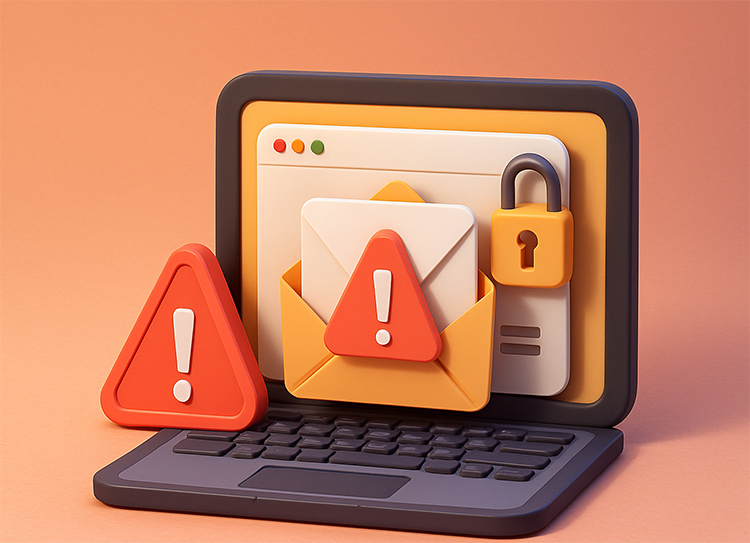Beware of Phishing Emails Disguised as Wire Transfers from bankonlinesupport.com

Why This Matters
Cybercriminals are becoming more creative every day, and one of the most common tricks is impersonating a trusted source to push fraudulent wire transfers. Recently, emails from bankonlinesupport.com have been reported, pretending to be urgent banking or payment requests. These messages are designed to trick you into clicking malicious links, sharing sensitive information, or sending money to criminals.
What These Emails Look Like
- Sender address: Often something like support@bankonlinesupport.com.
- Subject lines: “Wire Transfer Notice,” “Payment Instructions,” or “Transfer Failed.”
- Content: Creates urgency by claiming there’s an issue with a transfer, asking you to review details or update account information.
- Links & attachments: Lead to phishing websites or install malware.
Remember: while the domain name might look legitimate, scammers can register domains that sound trustworthy.
Red Flags to Watch For
- Urgency or threats – “Immediate action required” is a classic ploy.
- Unexpected requests – You didn’t initiate a wire transfer, but you’re told one needs your attention.
- Generic greetings – “Dear customer” instead of your actual name.
- Suspicious links – Hover over any link before clicking. If it doesn’t match the official bank website, don’t click.
How to Protect Yourself
- Do not reply, click, or download. Treat the message as unsafe.
- Report phishing. In Gmail or Outlook, use the built-in “Report phishing” option. This helps block similar emails in the future.
- Block the sender/domain. Set up a filter for @bankonlinesupport.com to delete automatically.
- Verify out-of-band. If you ever receive new wire transfer instructions, confirm them by calling a verified phone number (never one listed in the suspicious email).
- Educate your team. Awareness is the strongest defense against social engineering scams.
If You Already Responded
- Contact your bank immediately. Ask them to stop or recall the transfer.
- Change any compromised passwords.
- Report the scam to the FTC at reportfraud.ftc.gov.
Final Thought
Phishing attempts like these are part of an ongoing trend where cybercriminals impersonate financial institutions. Always remember: banks will never ask you to confirm sensitive details over email. Staying cautious and verifying requests through trusted channels is the best way to keep your money and data safe.

